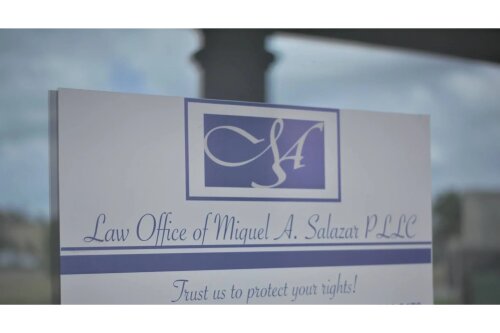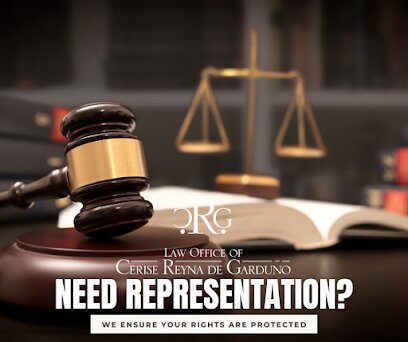Best Marriage Lawyers in Indiana
Share your needs with us, get contacted by law firms.
Free. Takes 2 min.
Free Guide to Hiring a Family Lawyer
Or refine your search by selecting a city:
List of the best lawyers in Indiana, United States
About Marriage Law in Indiana, United States
Marriage in Indiana is a legally recognized union between two individuals, governed by state statutes and procedures. Indiana law outlines who may marry, the process for obtaining a marriage license, the legal rights and responsibilities attached to marriage, and the procedures for ending a marriage if necessary. Whether you are planning to marry, already married, or have questions about marital rights, understanding Indiana marriage law is crucial to protect your interests and ensure compliance with state regulations.
Why You May Need a Lawyer
While many marriages proceed without legal complications, certain situations may arise that require the assistance of a lawyer. Common scenarios include:
- Ensuring both parties meet statutory requirements for marriage
- Preparation or review of prenuptial or postnuptial agreements
- Addressing questions about property rights or financial obligations
- Assistance with marriage license denials or other procedural issues
- Dealing with complex family arrangements, such as blended families or guardianships
- Navigating religious or cultural requirements along with legal obligations
- Handling issues related to same-sex marriage or recognition of out-of-state marriages
- Legal separation, annulment, or divorce proceedings
A lawyer can offer guidance, ensure all paperwork is completed correctly, protect your rights, and help you navigate sensitive or complex circumstances.
Local Laws Overview
Indiana marriage law is defined under the Indiana Code, primarily in Title 31, Article 11. Here are some key points relevant to marriage in Indiana:
- Minimum Age: You must be at least 18 years old to marry without parental consent. Individuals aged 16 or 17 may marry with court approval and parental consent under certain conditions.
- Marriage License: Couples must obtain a marriage license from the county clerk. Both parties must appear in person, present government-issued identification, and pay the required fee.
- Residency: There is no residency requirement to marry in Indiana, but residents must apply in the county where one party lives. Non-residents must apply in the county where the marriage will take place.
- Waiting Period: There is no mandatory waiting period, and licenses are generally valid immediately upon issuance for up to 60 days.
- Prohibited Marriages: Marriages between close relatives (such as siblings or cousins) and marriages involving currently married persons (bigamy) are not allowed.
- Officiants: Judged, ministers, priests, and other persons authorized by their religious or spiritual organizations may officiate weddings.
- Same-Sex Marriage: Same-sex marriage is legal in Indiana.
- Name Change: After marriage, either spouse may choose to change their name but must go through the appropriate legal process if not included in the marriage application.
Frequently Asked Questions
What are the requirements to get married in Indiana?
Both parties must be at least 18 years old, or 16-17 with court and parental approval. You need a valid state-issued photo ID and must apply for a marriage license in the appropriate county.
Can non-residents get married in Indiana?
Yes, non-residents can get married in Indiana, but they must apply for a marriage license in the county where the ceremony will take place.
Is there a waiting period after receiving a marriage license?
No, there is no waiting period in Indiana. You can get married immediately after the marriage license is issued.
How long is a marriage license valid?
A marriage license in Indiana is valid for 60 days. The marriage must take place within that timeframe.
How much does a marriage license cost?
The fee varies by county but is typically between 18 and 60 dollars. Some counties offer discounted rates for residents.
Who can officiate at my wedding in Indiana?
Ordained or licensed ministers, judges, mayors, and certain other officials can officiate weddings in Indiana.
Are same-sex marriages recognized in Indiana?
Yes, Indiana recognizes and allows same-sex marriages in accordance with United States law.
What are the rules about marrying relatives in Indiana?
Indiana law prohibits marriage between close relatives such as siblings, parents and children, and aunts or uncles with nieces or nephews. There are some exceptions for first cousins over age 65.
Can I change my name when I get married?
Yes, either spouse may change their name upon marriage, but it is recommended to indicate the name change on the marriage application to simplify the process.
What do I do if I lose my marriage certificate?
You may request a copy of your marriage certificate from the county clerk's office where your marriage license was issued. There is usually a small fee for this service.
Additional Resources
For more information or assistance regarding marriage in Indiana, consider reaching out to these helpful resources:
- Indiana State Department of Health - Vital Records
- Indiana County Clerk's Office (specific to your county)
- Indiana Legal Services
- American Bar Association - Family Law Section
- Local family law attorneys or legal aid societies
Next Steps
If you are seeking legal assistance related to marriage in Indiana:
- Gather all relevant documents, such as identification, prior marriage dissolution records, and any prenuptial agreements.
- Contact your local county clerk for procedural questions regarding marriage licenses or certificates.
- Consider scheduling a consultation with a family law attorney, especially if you have complex legal concerns or want to draft agreements.
- Utilize public legal resources or legal aid organizations for guidance if cost is a concern.
- Stay informed by reviewing the Indiana Code and other official state resources for any updates to marriage laws.
An experienced legal professional can help ensure your rights are protected, whether you are entering into a marriage, seeking recognition of your marriage, or dealing with any legal issues surrounding marital status in Indiana.
Lawzana helps you find the best lawyers and law firms in Indiana through a curated and pre-screened list of qualified legal professionals. Our platform offers rankings and detailed profiles of attorneys and law firms, allowing you to compare based on practice areas, including Marriage, experience, and client feedback.
Each profile includes a description of the firm's areas of practice, client reviews, team members and partners, year of establishment, spoken languages, office locations, contact information, social media presence, and any published articles or resources. Most firms on our platform speak English and are experienced in both local and international legal matters.
Get a quote from top-rated law firms in Indiana, United States — quickly, securely, and without unnecessary hassle.
Disclaimer:
The information provided on this page is for general informational purposes only and does not constitute legal advice. While we strive to ensure the accuracy and relevance of the content, legal information may change over time, and interpretations of the law can vary. You should always consult with a qualified legal professional for advice specific to your situation.
We disclaim all liability for actions taken or not taken based on the content of this page. If you believe any information is incorrect or outdated, please contact us, and we will review and update it where appropriate.
Browse marriage law firms by city in Indiana
Refine your search by selecting a city.














